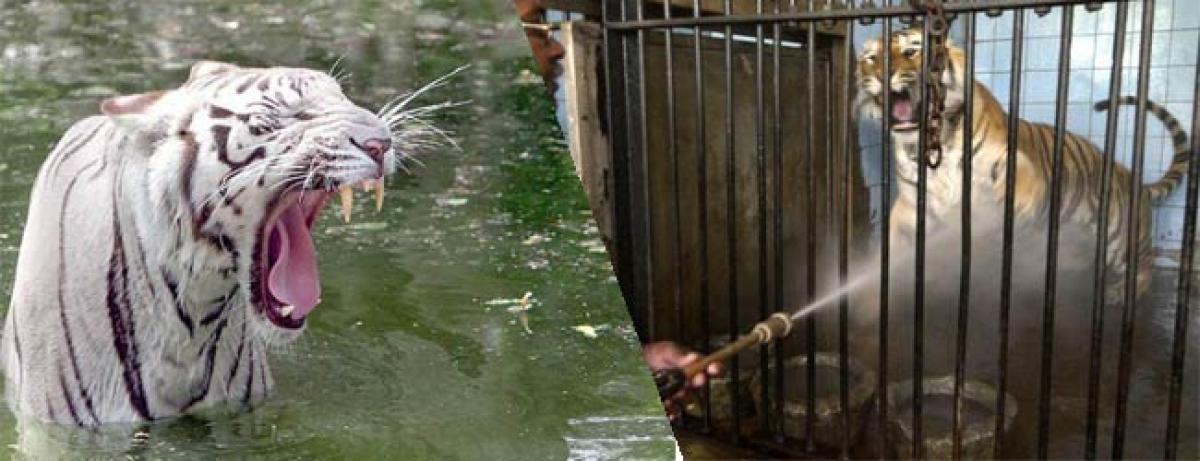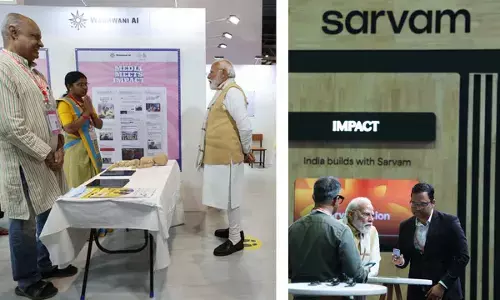Delhi zoo animals beat the heat with coolers and water melons

From setting up giant coolers and mini water pools, to adding electrolytes in drinking water and providing loads of cooling fruit like cucumber and water melons -- the Delhi Zoo has made special arrangements to ensure the scorching summer heat doesn\'t hit its animals.
New Delhi: From setting up giant coolers and mini water pools, to adding electrolytes in drinking water and providing loads of cooling
fruit like cucumber and water melons -- the Delhi Zoo has made special arrangements to ensure the scorching summer heat doesn't hit its
animals.
Education curator and public relations officer Riyaz Ahmed Khan said the Delhi Zoo, or the National Zoological Park, has in view of the
intense heat this year made special arrangements for over 60 species of birds and beasts it houses.
"Generally, we start making preparations for summer on April 23 every year, but due to the excess heat this year we started the process
three weeks in advance," Khan told IANS.
"We are making mini water pools for animals and have installed giant coolers which work round the clock in the enclosures. We ensure
that enough water is provided to animals so that they don't get dehydrated, and we also provide electrolytes to them," he added.
According to officials at the zoo, the diet of the animals is also changed as soon the summer season begins.
"For herbivores, we modify their diet and provide seasonal fruits which have more water content -- such as watermelon, cucumber, lotus
stem. We also feed them with corn. For carnivores, like the tiger and lion, we have reduced their meat intake from 12 kg per day to 10 kg
per day," said Riyaz, who has been working with the zoo for 30 years.
Water sprinkling is done in all the cages four to five times a day, and animals such as tigers and elephants are bathed with spray pumps
twice a day to maintain their body temperature.
"We are also constructing two pits each for the elephant and rhino enclosures. One pit is filled with water while the other is filled with
mud, since they like dust baths to keep their body temperature cool," he said.
The zoo has provisions to treat the sick animals and when they are taken ill. they are taken to veternary hospital.
"Some of the bird cages have been shifted to a different location in the park to avoid direct sunlight. We have also covered their cages
with golf net sheets to ensure it remains airy," Jagpal, one of the caretakers at the zoo, told IANS.
The summer heat, however, hasn't deterred people from visiting the zoo -- an attraction for the young and the old alike.
According to officials, around 5,000-7,000 people visit the zoo on weekdays while 10,000-12,000 people visit it during weekends.











